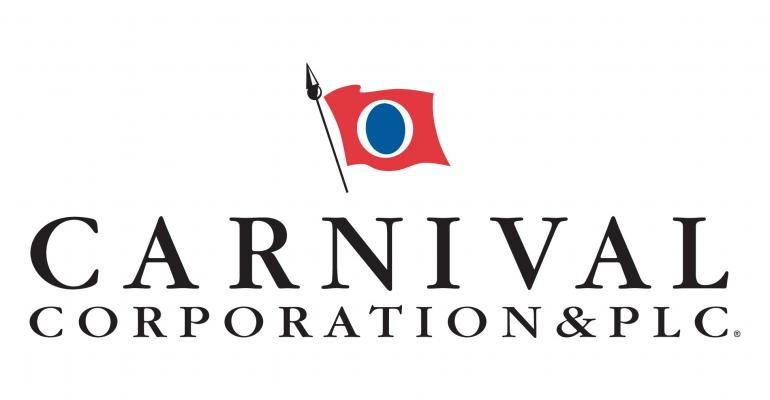The full report is at www.CarnivalSustainability.com.
As previewed here in June, the company aims to achieve a 40% reduction in carbon rate per available lower berth day by 2030, relative to a 2008 baseline, and aspires to net carbon neutral operations by 2050.
Achieving net carbon neutrality is among six focus area aspirations for 2050 that align with the United Nations' Sustainable Development Goals. They entail climate action, circular economy (waste reduction), sustainable tourism, health and well-being, diversity, equity and inclusion, and biodiversity and conservation. In each focus area, the company set key goals, targets and aspirations.
Climate action
Following a peak in absolute carbon emissions in 2011 despite a 20% capacity increase between 2011 and today, and an additional 19% capacity increase on order with new ships, the company will continue initiatives to reduce emissions over time and identify a pathway to decarbonization.
As part of this, Carnival is working toward transitioning its energy needs to alternative fuels, investing in new low-carbon or zero-carbon emission technologies and partnering with various organizations and stakeholders to support and accelerate decarbonization efforts.
The company leads the cruise industry's LNG commitment with a total of 11 LNG-powered ships that will have joined the fleet through 2025, representing nearly 20% of total capacity, including four ships already in operation. Carnival also has equipped 80% of its fleet with advanced air quality systems (scrubbers) and 40% of its fleet is capable of hooking up to shore power, a percentage that's aimed to reach 60% by 2030 and 100% by 2050.
Carnival aims to deliver a 50% reduction in absolute particulate matter air emissions by 2030, relative to a 2015 baseline, despite more than a 10% capacity increase since 2015 and the additional 19% capacity increase on order.
Circular economy
Rather than using materials once and discarding, Carnival hopes to shift to a circular economy, working with supply chain partners to reduce waste. This includes reducing non-essential single-use items like plastic cups, lids, cutlery, straws, toothpicks, sweetener packets, butter foils and so on. Carnival aims for a 50% reduction in single-use plastic items by the end of 2021.
Food waste biodigesters continue to be installed to minimize the volume of food waste. At the end of fiscal 2020, 32% of the fleet had these food waste biodigesters. Carnival hopes to achieve 30% unit food waste reduction by 2022 and 50% unit food waste reduction by 2030.
The company also aims to increase advanced wastewater treatment systems to more than 75% of its fleet by 2030.
Another goal is sending a larger percentage of waste to waste-to-energy facilities where practical by 2030, with the aspiration to send 100% by 2050. Also by 2050, Carnival hopes to near 100% reuse of packaging materials.
Building zero-emissions ships by 2050 is an aspiration.
Sustainable tourism
Goals and aspirations include establishing partnerships with destinations focused on sustainable economic development, preservation of local traditions and capacity management. Carnival also said it will continue to support disaster resilience, relief and recovery efforts.
The company aims to build stronger community relationships through employee volunteering programs.
And it aspires to be recognized as a leader in global sustainable tourism.
Health and well-being
Carnival plans to establish measurable company culture metrics in 2021 and set annual improvement targets. It plans to implement global well-being standards by 2023.
The company aims to reduce passenger and crew injuries and to become a leader in employee well-being measures.
Diversity, equity and inclusion
With employees from more than 100 countries, Carnival voiced its commitment to building a diverse and inclusive workforce and providing a positive work environment and equal opportunities for professional growth. In 2020, the company was recognized by Forbes and other media for its efforts in diversity, equity and inclusion.
Carnival aims to ensure its shoreside employee base reflects the diversity of the world by 2030 and also intends to expand shipboard and shoreside diversity, equity and inclusion across all ranks and departments.
Biodiversity and conservation
The company plans to continue implementing best practices across its operations, investing in programs that support biodiversity and conservation, working with its supply chain and partnering with the communities it visits to help maintain and improve their ecosystems. In addition, Carnival will be partnering with nongovernmental organizations that support biodiversity and conservation.
It intends to regularly conduct audits and monitor animal encounter excursions and hopes to supply 100% of seafood needs through sustainable fishery programs.
Copyright © 2024. All rights reserved. Seatrade, a trading name of Informa Markets (UK) Limited.
Add Seatrade Cruise News to your Google News feed.  |

